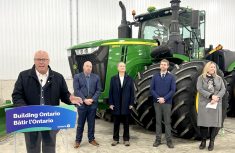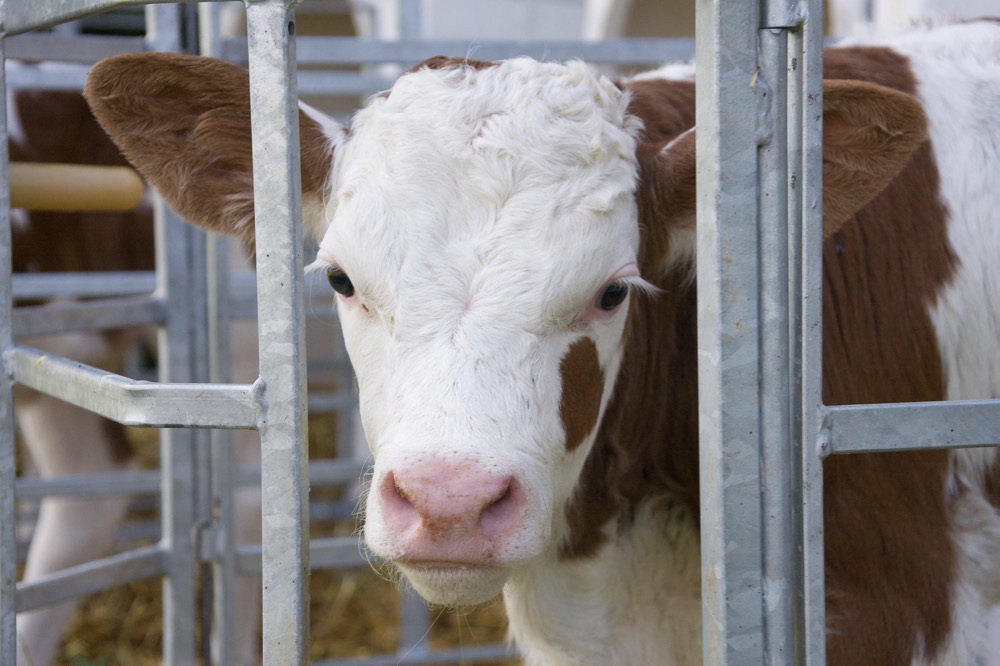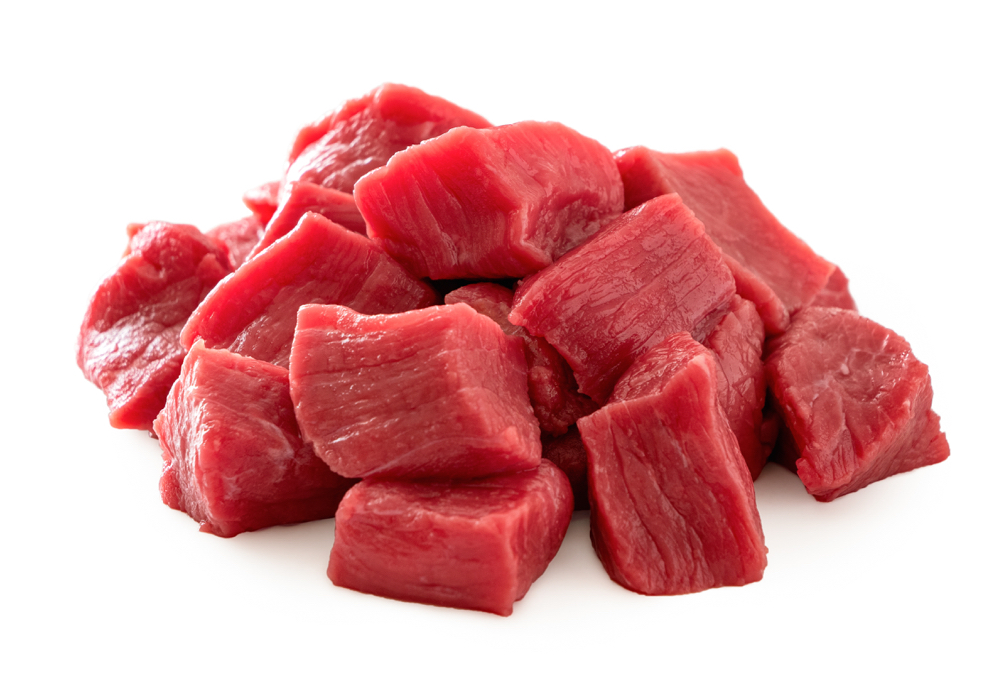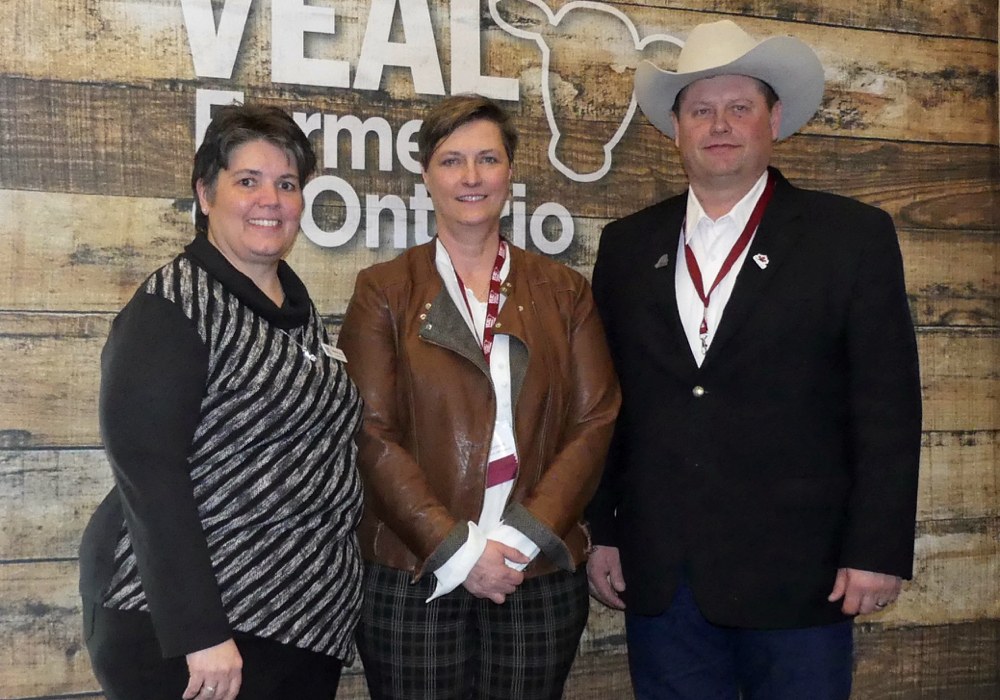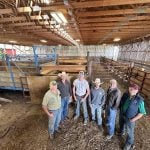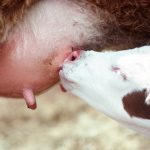Veal producers in Ontario are looking on as their counterparts in Quebec see gains in access to both domestic and international markets while their own ability to supply Ontario-raised meat to Ontario consumers continues to be hampered.
“I agree, it is always nice to see a local product on a local shelf,” said Auburn-area producer Tom Oudshoorn during a three-person panel discussion at the recent Veal Farmers of Ontario (VFO) annual meeting in Stratford.
Why it matters: Veal farmers in Ontario are challenged to compete outside of Ontario without more federally inspected processing capacity.
Read Also
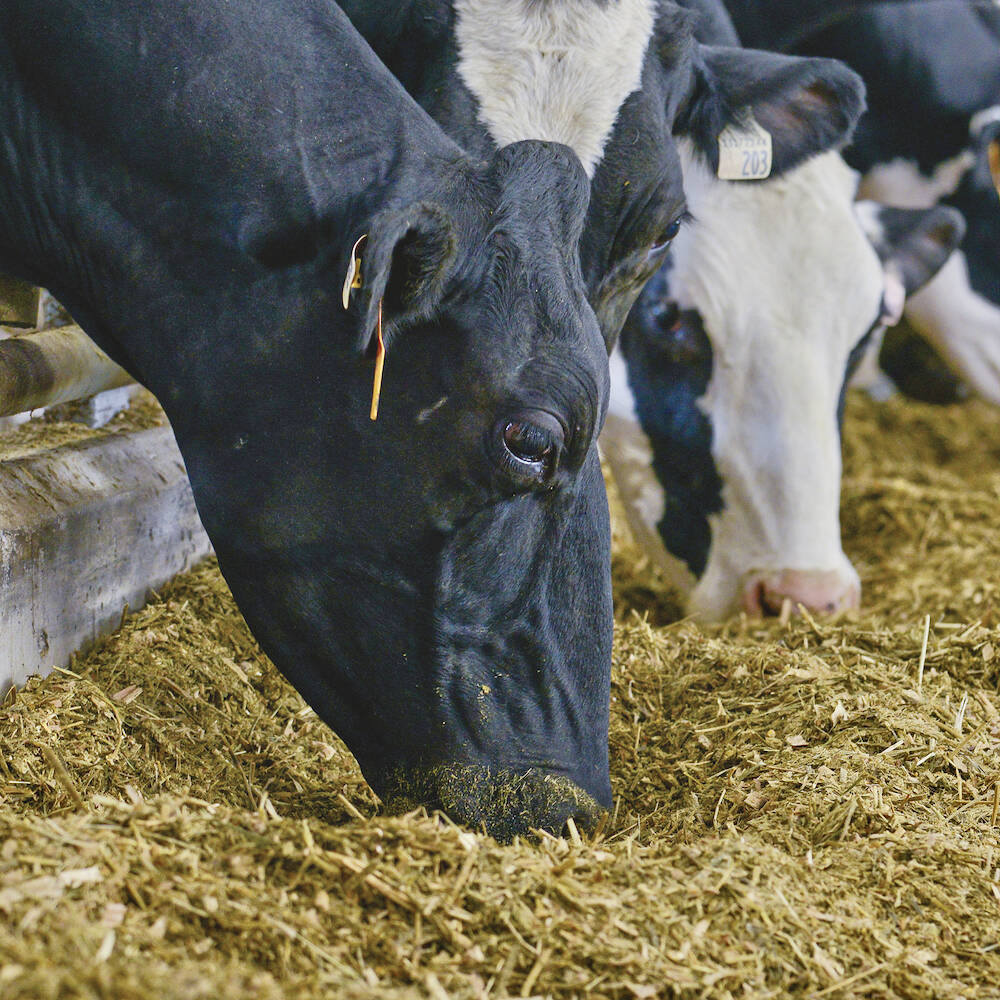
Byproducts with benefits for dairy cows
Local food processors can be a source of financially advantageous byproducts for dairy cows, but make sure the ration is properly balanced.
The challenge, repeated by numerous speakers during the March 6 event, is that only one federally inspected slaughter facility in Ontario currently processes veal, compared to several facilities in Quebec. VFO Executive Director Jennifer Haley, at one point in the meeting, encouraged VFO members to enrol in the Verified Veal Program that would be necessary for their animals to be processed into export-ready meat. But the response from producers was that it isn’t worth it if they don’t have access to the federally inspected slaughtering capacity that’s also a requirement for export.
There was a 186 per cent increase over the past year in veal sold in Ontario that wasn’t raised here, said Kendra Keels, VFO’s director for producer and industry development. Consumer demand is growing she says, but VFO members’ challenge is taking a larger role in supplying that growing demand.
Haley reinforced that assessment during her presentation about VFO’s marketing activities. “We’re not on the defence. We’re on the offence now,” the organization’s executive director said, adding the VFO team is targeting consumers who already eat veal. The goal is being pursued in programs like the Best Veal Sandwich program.
The program’s first year provided VFO with strong insight into how restaurants get their veal.
“Being able to get that intel and knowing that they really want to be able to source Ontario product was very valuable to us,” said Haley.
Nailing down the restaurant market can only do so much for Ontario’s veal sector. Access to federally inspected slaughter would displace Quebec-processed veal from major grocery chains (none of which currently stock Ontario-processed veal). In the longer term it would allow for greater Ontario participation in a European-Union market that emerged in the wake of recent trade agreements.
Keels cited two major factors – the increase in finished Quebec product coming into Ontario, and changes in dairy breeding strategies leading to more beef animals coming out of Ontario’s dairies. In 2018, only 34,290 veal animals were slaughtered in Ontario compared to 91,000 in 2004. The website of the Federation des Producteurs de Bovins du Quebec shows just over 190,000 head of veal were produced in that province in 2017, although it is not an apples-to-apples comparison, since the Ontario number doesn’t capture animals sent from Ontario into Quebec for slaughter.
Ontario Livestock Exchange President Larry Witzel used an hourglass analogy to describe the situation. There’s lots of supply of veal animals in the province (the top of the hourglass), and Ontario consumers are eager to try veal (the bottom of the hourglass). In the middle, though, is the bottleneck of processor capacity.
The challenge of verification, without a processor
The “Catch-22” scenario became clear, though, when the three afternoon panelists were asked by an audience member if they would consider joining the Verified Veal food safety and traceability program finalized in April, 2017 by VFO and the Producteurs de Bovins du Quebec.
Despite Haley’s encouragement to join the program, and her assertion that Verified Veal is mandatory in Quebec, but limited to a single participant from Ontario, all three said no. Even Oudshoorn, whose farm was a pioneer in adapting RFID eartag technology for their own use tracking animal sales and transport, said they would reject the added paperwork necessary for Verified Veal unless they could be guaranteed a premium price.
But, as the panel also noted, the status quo without Verified Veal isn’t necessarily all that bad.
Oudshoorn noted there’s not the same level of provincial government support for Quebec farmers as in the past, so producers in the two provinces are much closer to an equal footing when it comes to supplying calves to the Quebec-based processing plants. Producer/panelist Marvin Kroesbergen agreed, suggesting that much of the finished product in the fridges of Ontario’s grocery chains was actually raised in Ontario before being shipped to Quebec for processing.




